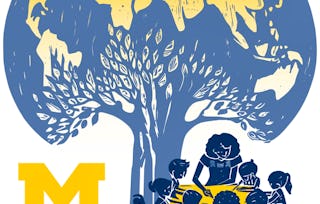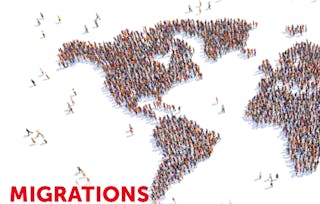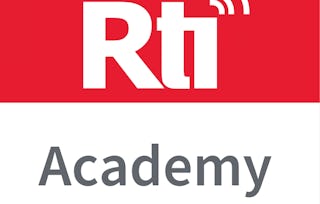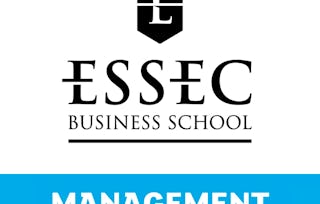A child born in 2020 is projected into an interconnected, interdependent world, in which local events can have global resonances and in which international phenomena impact the daily lives of many individuals. In order to prepare for this, not only the school, but also all the actors who make up the world of education must grasp new challenges characterized by an unprecedented internationalization.
即将结束: 只需 199 美元(原价 399 美元)即可通过 Coursera Plus 学习新技能。立即节省

您将学到什么
To identify the local resonances of global transformations in education.
To define and understand key terms and new fields arising from the internationalization of education.
To put into perspective what different actors in the educational sector have to say about internationalization.
您将获得的技能
要了解的详细信息

添加到您的领英档案
28 项作业
了解顶级公司的员工如何掌握热门技能

该课程共有6个模块
This first module is designed to introduce you to the overall theme of the course: internationalization of education. By defining educational policies and globalization, you will see the links between them and their effects on education systems. You will also see how various international organizations are key players in these internationalization processes. The aim of the course is to help you understand how events on a global scale can impact local or national education systems. This first module is therefore a springboard for placing education at the heart of an interdependent, globalized and increasingly complex world.
涵盖的内容
11个视频3篇阅读材料4个作业1个讨论话题
Global migrations are a path to internationalization, as well as one of the effects of globalization. Populations migrate, flee, and are always in search of something better or of survival. In this respect, migration has implied many changes, both in terms of educational policies and in the very conception of educational models. In systems where schools have traditionally been seen as a means of consolidating a Nation-State, migration has led to a rethinking of the place of identities, borders and the cultural dimension of education. In some cases, it is the forced nature of migration that will call for new educational policies, sometimes conceived as a matter of urgency, with the aim of responding rapidly to the needs of the most vulnerable pupils: refugee children. In this module, we explore this panorama of international migration and its effects on education. Through this theme, we will see how international events have repercussions on local actions.
涵盖的内容
8个视频7篇阅读材料6个作业1个插件
It is common today to receive calls for funds for international cooperation projects in education: these projects are numerous, often aiming at noble objectives such as the development of educational structures, or teacher education, all with the aim of allowing the greatest number of children to have access to quality education, all over the world. However, these projects, their conception and their implementation can be questioned: when did this type of initiative emerge; what is the vision of the world and more particularly of North-South relations? How are they implemented and with what collaboration with local communities? These are the questions that inspired this module. This is why we will explore together the origins, but also the current challenges of international cooperation in education: to understand its potential, while keeping in mind its limitations.
涵盖的内容
9个视频3篇阅读材料4个作业1个应用程序项目
These days, if you are looking for an article on an educational topic, chances are you will come across one in English or French. Indeed, most of the theoretical frameworks and authors referenced will come from European or North American academic circles. And yet, the voices of the South are neither silent nor non-existent. They participate in the internationalization of education, insofar as North-South relations are an important part of the action of international organizations active in education, and the South is the subject of numerous educational reforms guided by the process of internationalization. In this module, we propose to understand what the Global South is, its place in international educational relations, and the issues underlying the way in which the South is viewed. Finally, the last lesson aims to open up your educational perspectives by introducing you to pedagogies and pedagogues from the South.
涵盖的内容
9个视频5篇阅读材料4个作业
A prominent example of how education is becoming more international is the development of the concept of Global Citizenship Education. Since it was used by Ban Ki-Moon in 2012, it has become a leading theme in the educational world. International organizations and universities alike have taken it up. This concept crosses the issues of citizenship and sustainable development, which is why these two dimensions will be addressed in the module. As they represent major trends in education today, the module's primary objective is to give you access to the meaning of these concepts, but also to the tensions that characterize them.
涵盖的内容
9个视频2篇阅读材料5个作业1个讨论话题
In this module, we will try to understand how the governance of education is becoming increasingly international. Guided by international agendas, objectives are being harmonized between states. Monitoring processes are also becoming more international and concepts such as efficiency, quality, privatization... are found in many contexts in the North as well as the South. Through this module, we will try to identify the elements of this global governance, but also the underlying issues.
涵盖的内容
12个视频3篇阅读材料5个作业
位教师


从 Education 浏览更多内容
 状态:免费试用
状态:免费试用University of Michigan
 状态:预览
状态:预览Sciences Po
 状态:预览
状态:预览National Taiwan University
 状态:免费
状态:免费ESSEC Business School
人们为什么选择 Coursera 来帮助自己实现职业发展




学生评论
18 条评论
- 5 stars
77.77%
- 4 stars
16.66%
- 3 stars
0%
- 2 stars
0%
- 1 star
5.55%
显示 3/18 个
已于 May 6, 2025审阅
Few interviews were not in English and didn't even have English subtitle. Other than that, I really enjoyed the course. :)
常见问题
To access the course materials, assignments and to earn a Certificate, you will need to purchase the Certificate experience when you enroll in a course. You can try a Free Trial instead, or apply for Financial Aid. The course may offer 'Full Course, No Certificate' instead. This option lets you see all course materials, submit required assessments, and get a final grade. This also means that you will not be able to purchase a Certificate experience.
When you purchase a Certificate you get access to all course materials, including graded assignments. Upon completing the course, your electronic Certificate will be added to your Accomplishments page - from there, you can print your Certificate or add it to your LinkedIn profile.
Yes. In select learning programs, you can apply for financial aid or a scholarship if you can’t afford the enrollment fee. If fin aid or scholarship is available for your learning program selection, you’ll find a link to apply on the description page.
更多问题
提供助学金,






